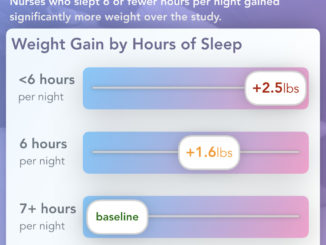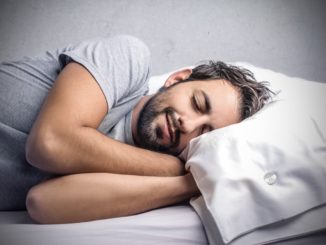
If you’re someone who didn’t sleep so well last night for whatever reason, you may be feeling a little jaded as you read this. This is understandable. You may well be thinking that just by getting your so-called ‘eight hours’ of sleep for the next few nights may redress the balance.
This is true, to an extent. You’ll learn more about why I say ‘to an extent’ in a moment.
However, you may also be someone who did get your eight hours last night, and the night before and the night before, but for some reason you feel you’re not firing on all cylinders. This also understandable, and you’re about to find out why.
Not All Sleep Is Equal
We may think that all sleep is equal. But it isn’t. The quality of our sleep varies from one part of the night to another. Our bodies have a natural rhythm to them, and that rhythm is thousands of years old. It is called a circadian rhythm.
It is the rhythm of nature, and one that animals instinctively live by. We are as human beings essentially animal, and are designed to live according to this natural rhythmic cycle.
That cycle can be seen in the passage of the day and the passage of the seasons. We have the dawn of the day (Spring) where we wake up. We then move into the main part of our day (Summer) when we are most adapted to work. This is followed by winding down towards the end of the day (Autumn) and finally sleeping at night (Winter).
We are therefore naturally designed to wake up with the rising of the sun and sleep when the sun goes down. When we adjust our lifestyle to accommodate this natural rhythm we have a better quality of sleep.
Our Natural Sleep Cycles
Similar to this natural rhythmic cycle, our sleep pattern also has a natural cycle to it. When we sleep we oscillate between deep regenerative sleep (where the body repairs itself) to the slightly lighter REM (Rapid Eye Movement) sleep state in which we dream.
These sleep cycles last for around 90 minutes each. So if you are finding that you are getting eight hours sleep and you still feel tired when you wake up, you’re probably setting your alarm clock to wake you up in the middle of a sleep cycle rather than at the end of it.
For example if you went to bed at 11pm and woke up at 8am you would have slept for nine hours and gone through six complete sleep cycles. These would be:
Cycle 1. 11.00 pm-12.30 am
Cycle 2. 12.30 am-2.00 am
Cycle 3. 2.00 am-3.30 am
Cycle 4. 3.30 am-5.00 am
Cycle 5. 5.00 am-6.30 am
Cycle 6. 6.30 am-8.00 am
After sleeping from 11pm to 8am, you’d probably feel quite refreshed when you woke up.
If, however, you set your alarm to wake you up at 7am you would have got eight hours of sleep, but would have woken up during a 90-minute sleep cycle (between 6.30 and 8.00). Therefore it’s possible you wouldn’t feel quite as refreshed on waking as you would do if you had woken up at 8.00am
Repair & Rejuvenation
In addition to these shorter, 90 minute, cycles, according to our circadian rhythm, the body regenerates and rejuvenates itself most significantly between the hours of 10pm and 2am.
So you may be going to bed at say 1am and sleeping until 9am to get your eight hours, but you’re losing out on three vital hours of body repair time every night. And if you work shift patterns, especially the night shift, you may be throwing your circadian rhythm out completely, denying yourself the chance of adequately repairing your body during sleep.
3 Top Sleep Tips
So to give yourself a higher chance of improving your performance, productivity and subsequent results in life consider the following three tips:
1. Bring your lifestyle in line with your natural circadian rhythm and get to bed by 10pm
2. Ensure that you have eight or more hours of sleep per night
3. Try not to wake up to an alarm clock. If you must, set it such that you’re waking up at the end of a 90-minute sleep cycle rather than in the middle of it
Proudly WWW.PONIREVO.COM



